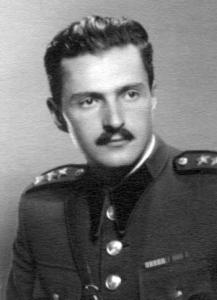Technical note by the translator
 By Dr Alexander Rehák, Bratislava, 24 January 2006.
By Dr Alexander Rehák, Bratislava, 24 January 2006.
BKS = Bishops Conference of Slovakia – for the sake of conciseness translated as
Unusual terminology can be found at some places – examples follow: positive teachers – in the chapter on liturgy -- deaconry as a witness -- marital relations as a mystery -- to support exchange of experience with the Gospel among the children -- to develop in children feelings for mission -- diocesan animation schools -- spiritual restorations -- to reveal the person of Jesus Christ and to reveal the life as a calling -- animators = activists? -- inner freedom, which opens the man to service to God.-- spiritual life ingrained in God’s word -- to become witnesses of the faith’s tradition -- by prayers to contribute to their own sanctification, sanctification of their dearly loved and of the Church -- to teach them witnessing the Gospel, with no words but with deeds of love -- by their prayers and suffering in union with the Christ’s sacrifice they can implore for mercy to themselves and for others -- people of good will, in whose heart mercy acts in an invisible way -- The Holy Ghost grants to all, in a way known only to God, to have their share in this mystery of Eastertide -- people who accidentally don’t know God -- a responsibility which has been given by being inoculated by Christ, by being ordained and by accepting the office in the Church -- vitalise local groups of lay people in particular parishes, so that the Romany settlement becomes a missionary station for individual parishes -- wayfaring is namely an expression of the existentional dimension of the human religious trends. We are wanderers on this earth, but as believers we have a concrete target in front of us, the heavenly homeland -- inner spiritual restoration.
At other sites the strange phraseology used is derived from the luxuriant and ornate vocabulary of priestly way of expressing the "Holy Matters", which often gives no logical sense. All these passages were translated verbatim in order to preserve the style used in the document.
In the following expressions it was necessary to unify the terminology:
holy orders / religious orders / monastic orders -- laymen / laic/ laics/ laicity -- Holy Mass / Divine Service -- announcing/ heralding ( "the Good News"= the Gospel) -- acolyte/ acolyte boy (= altar boys, boys trained to serve the priest during the Mass) -- presbytery /sanctuary -- priestly recollection/ priestly meditations(?) -- Society of Saint Adalbert = in Slovak "Spolok svätého Vojtecha"
There are some neologisms (in Slovak) : inkulturizácia = enculturation?
Neologisms derived from the notion evangelisation and pastorisation needed to be unified.
In the whole document the term "spiritual" is used instead of the English term "pastoral" in order to better describe the meaning of the original. This point is mentioned in the document itself at the end. The notion of the spiritual/spirituality is also frequently used in this document, often with a very vague meaning. From the context itself it could be inferred that everything compliant with religious ideology is spiritual.







 Pastorisation and Evangelisation Plan of the Catholic Church in Slovakia for 2001-2006
Pastorisation and Evangelisation Plan of the Catholic Church in Slovakia for 2001-2006